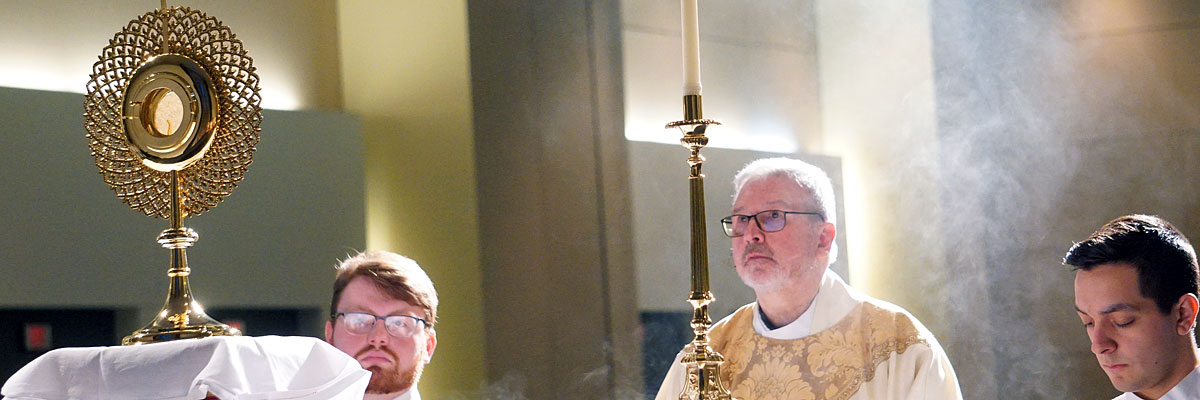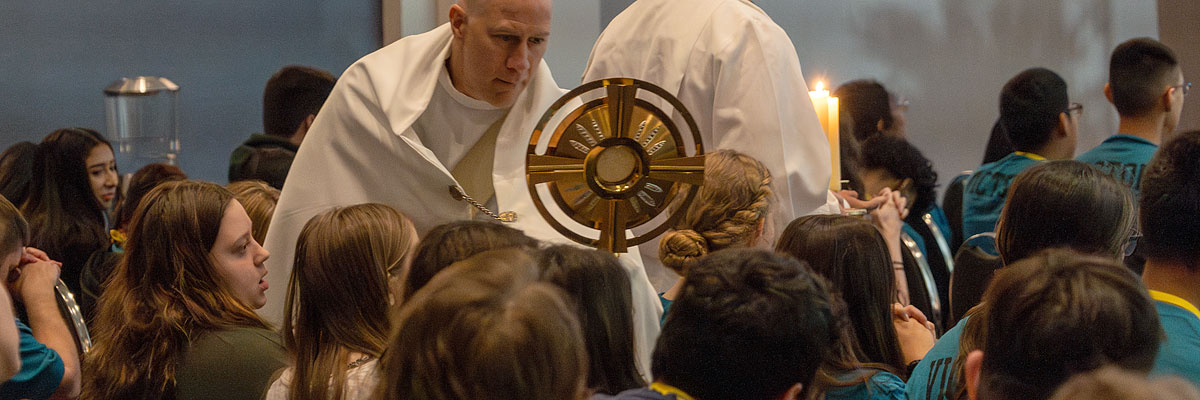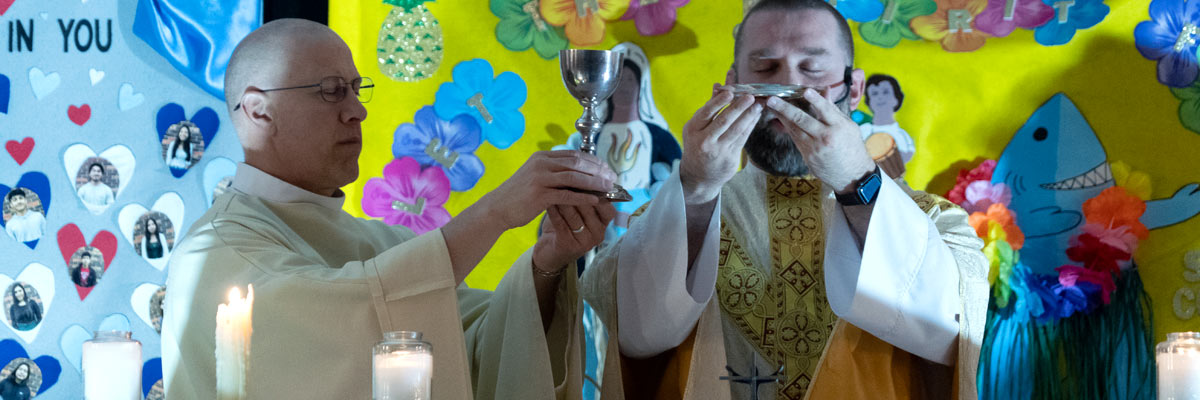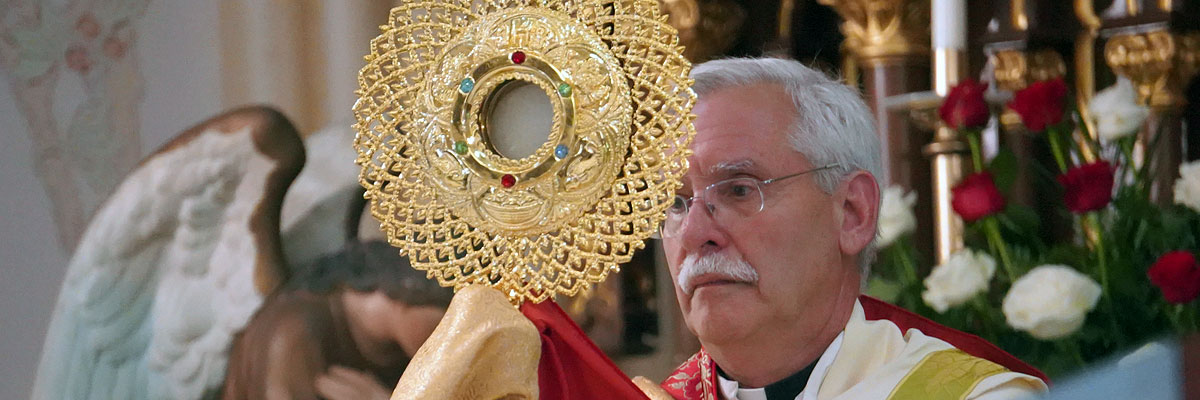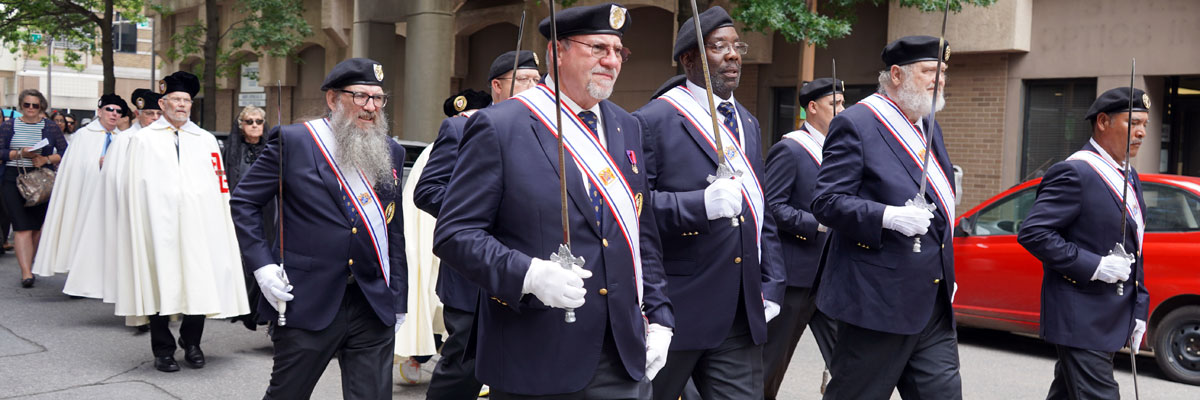Official Website of the
Catholic Diocese of Little Rock
Monday, 18th Week of Ordinary Time, Cycle II
Published: August 1, 2016
Bishop Anthony B. Taylor preached the following homily for diocesan seminarians and their parents at the Cathedral of St. Andrew in Little Rock on Monday, Aug. 1, 2016.

Bishop Taylor
When the Oklahoma missionaries went to Guatemala in 1963 they took a boat to an isolated place on a lake where they found thousands of people who had been abandoned for generations, and their hearts were moved with pity for them.
They developed programs designed to address their most obvious material needs in the area of health care and education, as well as their spiritual needs through catechesis and in the liturgy. They translated the prayers and readings of the Mass into their language so that they could understand better truths about God, about their faith and about what this meant for them personally.
But some of their needs were simply overwhelming. So many oppressed, desperately destitute people, and only a handful of them. These missionaries worked very hard, but most were unable to sustain this heroic effort to do good when faced with times of crisis — whether that crisis was in their own personal lives or in that of the community.
If we rely only on our own human ingenuity and merely human solutions, we are doomed to frustration and even burn out. But if, like Father Rother, we put our trust in God's providence, we will flourish ...
And they all eventually abandoned the effort and went home — some even abandoned the priesthood — except Father Rother, who didn't rely on his own strength alone. He drew his strength from Jesus and especially from the Eucharist, and thus experienced how God provides all the strength we need, especially in times of crisis. It wasn't all on him.
In today's Gospel, Jesus takes a boat to an isolated place on a lake, where he finds thousands of people who were abandoned spiritually and materially, and his heart was moved with pity for them in their need. He cured the sick and taught them about the Kingdom of God in language that they could understand, and what this meant for them personally.
But there were thousands of them and in the eyes of Jesus' disciples, some of their needs were simply overwhelming. Most obviously in the short term was the fact that they hadn't eaten and there was no way they could see to meet that need. So when faced with this crisis they tried to talk Jesus into abandoning the rest of what he had planned for the day in order to send the people to the neighboring villages where they could buy food.
And here Jesus steps in to provide for them in a way that they could never have imagined. He teaches them not only to rely on God's providence (that he can provide a way when there are no obvious human solutions) but also in this case, by multiplying the loaves, he prefigures the Eucharist which will be the greatest source of continuing spiritual nourishment for his followers for all the generations to come.
Later we will learn that this Eucharist is even more than that, because it will in fact be Jesus' very body and blood.
In the past few years, more than half of our seminarians and some of our priests have been to Santiago Atitlán — seven of you seminarians were there with me just last week. You can now testify that Jesus continues to work miracles at an isolated place on the shore of a lake.
There is much still yet to do there, as there is in Arkansas, for that matter. If we rely only on our own human ingenuity and merely human solutions, we are doomed to frustration and even burn out. But if, like Father Rother, we put our trust in God's providence, we will flourish just as that parish is right now.
Remember all the talk of gloom and doom regarding religious vocations in the not too distant past — projections that if those trends continued, one day there would only be four priests left for all of Arkansas? But we trusted in God's providence and look at the results.
The same is true regarding the personal struggles that each of us has to deal with. Rely on yourself alone and you won't make it. But draw your strength from a living relationship with Jesus, nourished especially by the Eucharist, and you will flourish. And through so also will many others.
One day it will be you who look up to heaven, says the blessing, breaks the loaves and gives them to the crowds so abundantly that all will be satisfied, with even 12 wicker baskets to spare. Except in your case it will not be a miracle of multiplication as in today's Gospel, but rather a miracle of transubstantiation.


